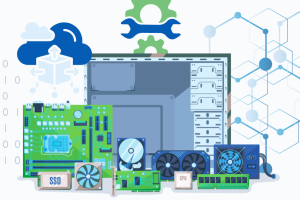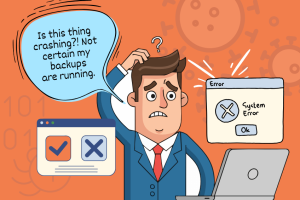Using a server in your business can be the best decision you can make. It can make the management of your business much more efficient as well as provide you with many services and features that would otherwise not be available. Unfortunately, implementing such a powerful tool into your organization can be a bit taxing financially. Money especially comes into play whenever you require more than one server in your business.
What is Virtualization?
Virtualization is a technology that makes the implementation of servers much cheaper, as well provides a means of centralized management.
Server/Workstation Virtualization
Server/Workstation virtualization is a means of creating a virtual, not physical, version of a server, workstation, storage device, or network resource. What this means is that you can potentially have the full functionality of something that would normally require a physical device, in a virtual environment.
One example of this would be in the case of needing multiple servers. You would purchase an actual server with hardware capable of virtualization, and load some sort of virtual machine server software onto it. This software actually takes the place of an everyday operating system. You would then create “virtual machines” on the server software, which you would then install regular operating systems onto, such as Windows Server. Networking, storage allocation, and other needed functions are all handled by the virtual server software.
How Is Virtualization Beneficial To Your Business?
With this technology, you are saving money by not having to purchase a new physical server. Instead, you purchase the operating system and load it onto a virtual machine you’ve created. Virtual machines provide a simple way to manage your server environment by providing a central point of management. You could even go as far as to sign up for virtual machines in the cloud. Cloud management of your VMs (virtual machines) is another possible benefit of this technology.
Virtualization Solutions / Platforms
There are many different companies and services offered to provide you with virtualized systems. Three of the most promising include:
- Vmware – the leading platform in virtualization
- Oracle VirtualBox
- Microsoft’s Hyper-V
On top of servers, you can also virtualize other resources such as desktop environments, networking equipment like routers and switches, and even networked storage.
Virtualization has made many network resource implementations much easier and efficient, it’s no wonder so many companies are beginning to add some sort of virtualized environment to their infrastructure.




